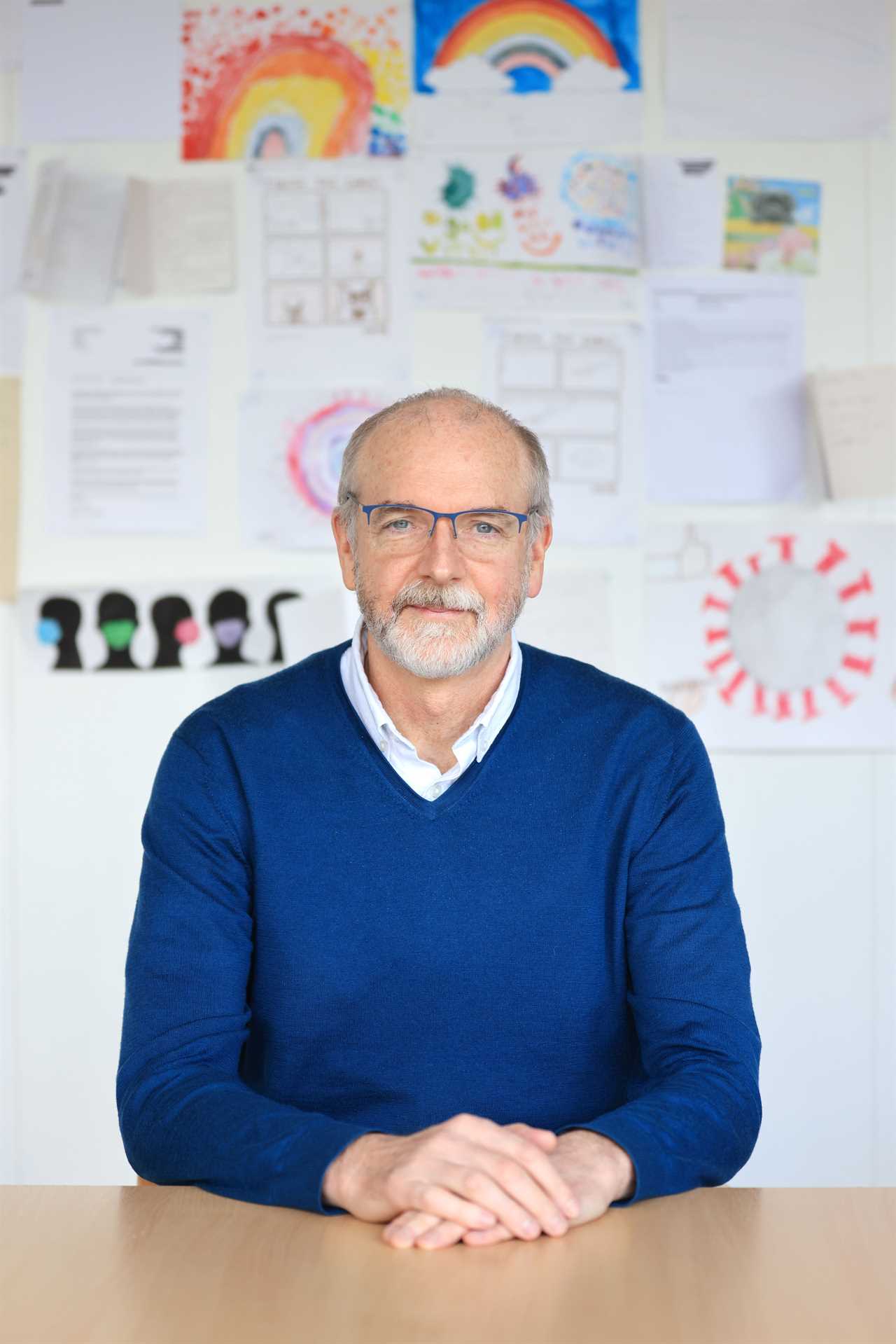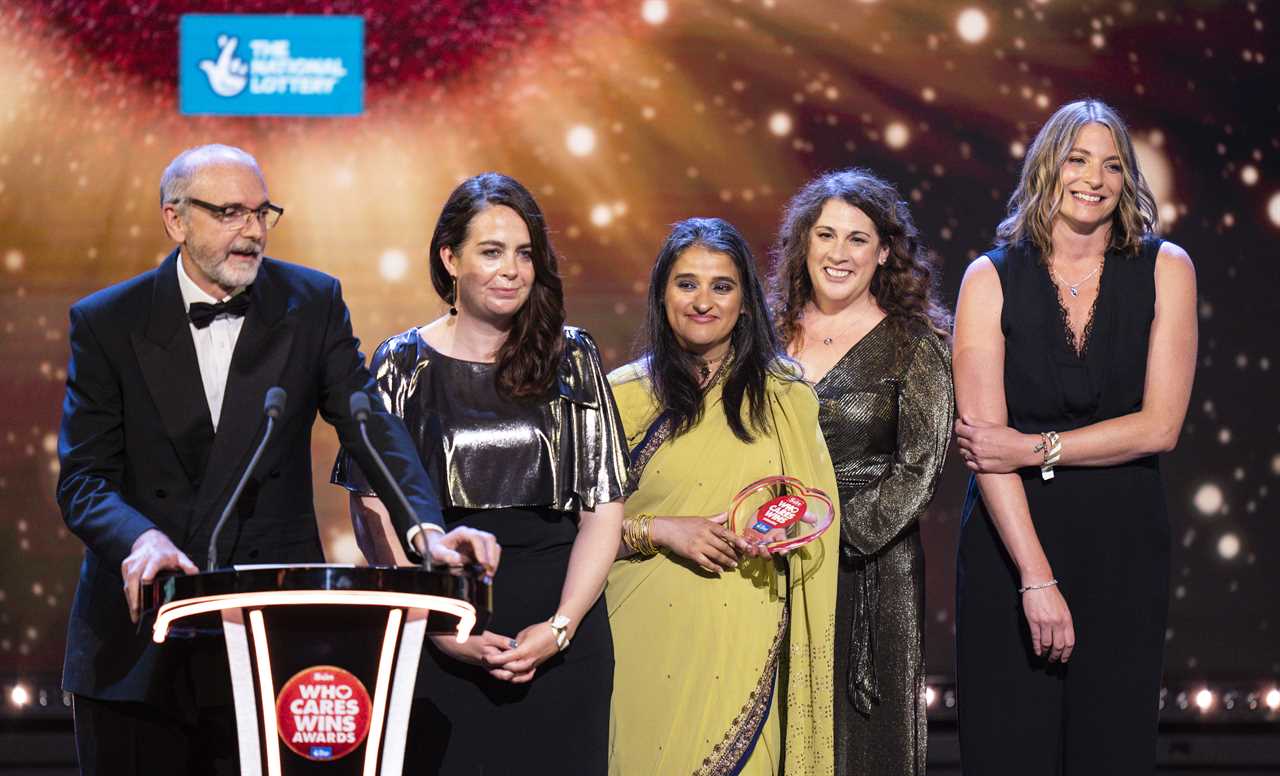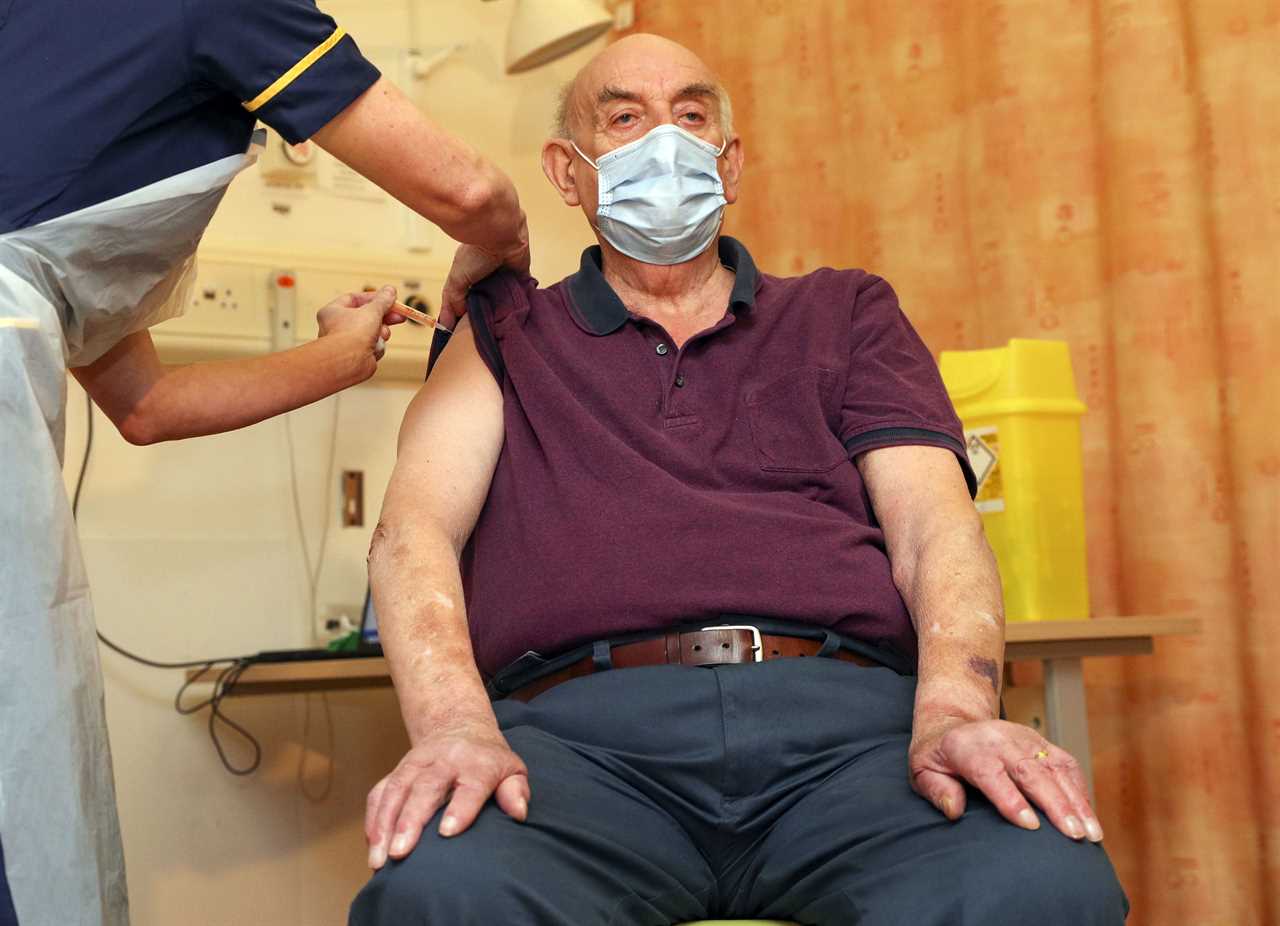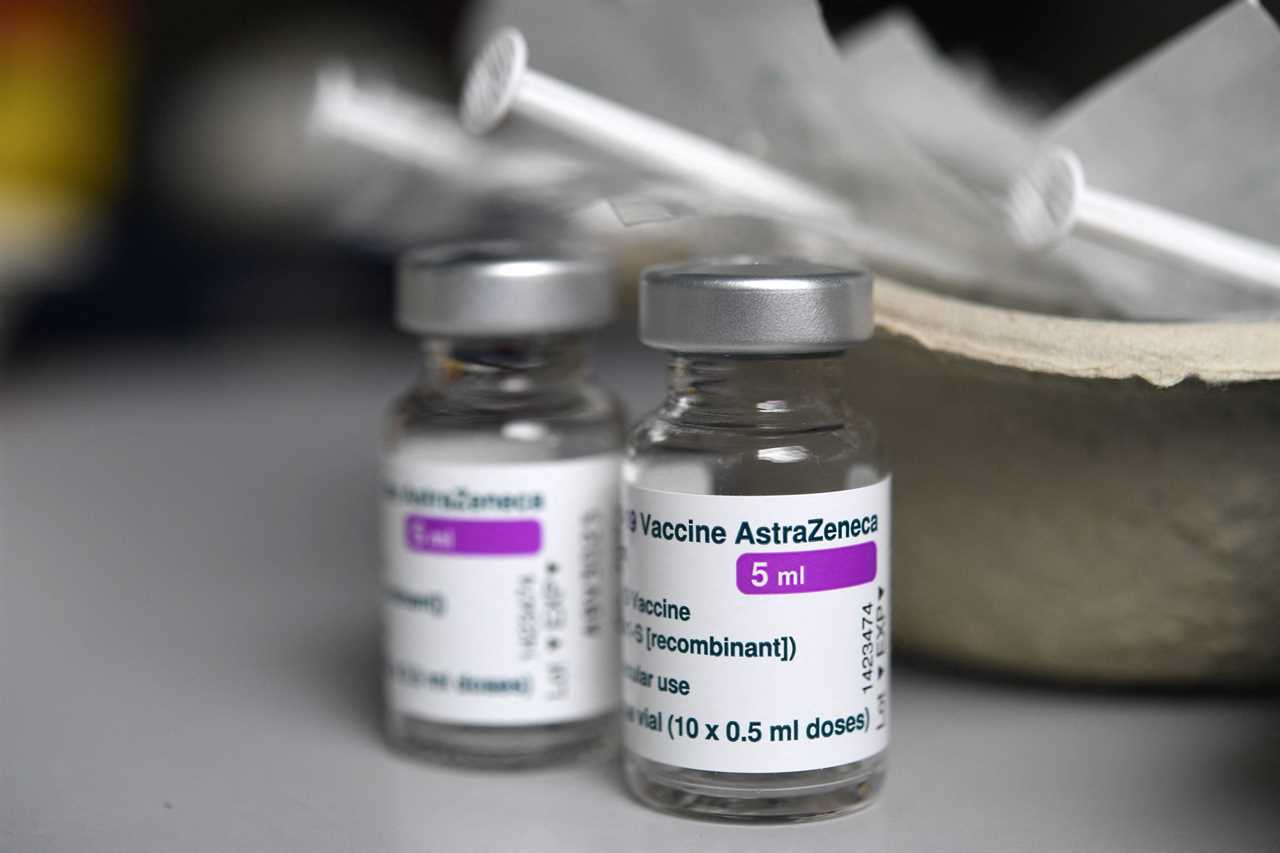AS the scientist behind millions of life-saving Covid jabs, you might expect Professor Andrew Pollard to be loved by all.
Instead, he and the team behind the Oxford-AstraZeneca vaccine have been forced to call in the police after being bombarded with chilling threats from hateful anti-vaxxers.


Speaking exclusively to Trending In The News on Sunday, 56-year-old Prof Pollard revealed: “We get a lot of negative correspondence from people, some of it threatening.
“We’ve had extra security during the pandemic and we’ve had the police involved if necessary.
“There are regular discussions with them about potential threats. It is a little bit scary, but we are supported.”
In a wide-ranging interview to mark the Oxford jab’s first anniversary, Prof Pollard says Covid restrictions should no longer be “holding people back”.
He also reveals he has been asked for autographs while out jogging although he jokes that he will not be taking part in Strictly any time soon.
Prof Pollard is speaking from the vaccine group’s HQ in Oxford, its walls plastered in touching thank you letters, mostly from children.
It is difficult to imagine the team being subjected to the hateful threats they face.
But the professor says “you have to shrug off” anti-vax extremists.
He adds: “It extends to the cybersecurity side of things, where there’s a very good team here at the university that has been supported by the Government’s cybersecurity unit.
“It’s a minority. The overwhelming sense is how grateful people are that there are vaccines that have helped us get through this.
‘I’ve had requests for autographs’
“We got tons of correspondence from children, particularly during 2020 when we were obviously in lockdown thinking about what was going on and the science.
“And one of the things I really hope is that there’s going to be this new generation who are embracing science and how it underpins almost everything we do in our lives.
“I think some are going to become vaccine experts.”
It has been 13 months since the first Oxford-AstraZeneca jab was administered to dialysis patient Brian Pinker, then 82, on January 4, 2021.
Prof Pollard, who was knighted in the Queen’s Birthday Honours list last summer, was the third person in the world to receive it.
He is confident we are now in a “completely different place”.
On Thursday all Covid regulations — including the requirement to isolate after testing positive — will be abolished.
Prof Pollard is broadly positive about the rolling back of restrictions, believing people should not be “held back” by the pandemic.
He said: “We are now in a completely different place. Because certainly in Europe, the vast majority of people have been vaccinated.
“There have been many infections, which have further boosted immunity in those who have been vaccinated.
“And even in the unvaccinated there’s been many infections, which does generate some immunity.
“So we reached a point where the population is very unlikely to get severely ill with Covid. There are always exceptions to that, and we’ve seen them from some people who are still suffering in hospital.
“But it’s not possible now to go back to the beginning of the pandemic unless you get a new virus.”
He added: “Obviously there’s a health aspect to it, but the decisions have to be made by the politicians based on what they think is best for their country.
“But we have to reach a point in the future where countries have done as much as they can to protect their citizens through vaccination and improving resilience into health systems.
“And once you’ve reached a point where there isn’t another intervention that you can do, then you have to decide what society is going to look like after that.
“If you continue to restrict at that point, without actually having something new that you’re holding people back from, then there is much less benefit.
“So you think countries will reach a point, I don’t know when that is, where all these restrictions will fade away because they no longer make sense.”
Even so, Prof Pollard argues that we have the ideal breeding ground for another more deadly pandemic.
He says: “If you look at the circumstances that you would want if you were trying to start a pandemic, it would be a huge population size, as has happened over the past century — the human population is enormous, and it’s going to continue to rise up to 2050.
“You want to have lots of international travel, which we’re actually quite good at, you’d want to have people living in crowded communities, which is the case in many parts of the world.
“And people encroaching on either the territories where animals inhabit, or having animals brought into their own communities, as happens in various practices around food, particularly in some parts of the world.”
He also believes we “got lucky” with Covid, which kills a tiny percentage of those who catch it. He continues: “Whichever data set you look at, there’s less than one per cent mortality from this virus.
“The coronavirus that didn’t spread very well ten years ago, MERS, killed 35 per cent of people who got infected.
‘Astonishing bit of history’
“So what does a pandemic look like if you have a high-mortality pandemic?
“The plague in 1300 killed 50 per cent of the European population. It took another 100 years for Europe to regain its population size.
“And if you just think of the impact that would have today on the health system, half of the doctors and nurses are dead, as are supply chains for making new vaccines. And that is something which no one is ready for.”
Prof Pollard also believes rolling out vaccinations in countries where fewer people have received a dose should take priority over another booster jab in the UK.
He says: “If you look at a global perspective and you have two people in front of you — one of whom has had no doses of vaccine and someone who’s had two or three — it’s absolutely clear that your biggest benefit is to give the next dose to the person with none.
“Hardly anyone in the UK is unvaccinated, but the dominant severe Covid in hospitals is found in the unvaccinated.
“Now, if we do reach a pattern in the future where, like flu, it peaks each winter, even then we’re not going to be able to roll out vaccines in this country to 60million people every winter.
“And so, you have to start rethinking what boosting means. It means protecting those who you can identify as those who would end up in hospital.”
The scientists who make up the Oxford Vaccine Group have reached near rock star status since their first jab was administered.
Prof Pollard recalls the day, saying: “It was teeming with people early in the morning who were there to report on it.
“It was a very cold morning. So we went in, and I was the third to be vaccinated. The third person in the world!
“And then we spent about the next hour and a half outside in the cold, just in a shirt, talking to journalists and shivering. So there wasn’t a huge amount of time to indulge in the moment.
“But it’s an astonishing bit of history to have been there when it all started.”
Prof Pollard has become so recognisable that he has been stopped in the streets by curious fans.
He reveals: “I have even had requests for autographs, which is very nice, but usually when I’ve been out running and I feel a bit embarrassed — a bit red-faced and sweaty.”
And while he says he has had plenty of requests for new projects, the professor is not too keen on appearing on reality shows.
With a laugh, he says: “Definitely not Strictly!
“The requests have been much more professional than frivolous.”








